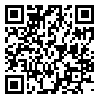Volume 8, Issue 30 (vol. 8, no. 30 2019)
2019, 8(30): 317-326 |
Back to browse issues page
Download citation:
BibTeX | RIS | EndNote | Medlars | ProCite | Reference Manager | RefWorks
Send citation to:



BibTeX | RIS | EndNote | Medlars | ProCite | Reference Manager | RefWorks
Send citation to:
pourgholam M, nasri M, ghoshchi F, tohidimoghadam H R, larijani H R. Effect of drought stress by application of hormone and Nano particulate spraying on maize biochemical traits Maxima cultivar. Plant Process and Function 2019; 8 (30) :317-326
URL: http://jispp.iut.ac.ir/article-1-939-en.html
URL: http://jispp.iut.ac.ir/article-1-939-en.html
Mohsen Pourgholam 
 , Mohammad Nasri *1
, Mohammad Nasri *1 
 , Farshad Ghoshchi
, Farshad Ghoshchi 
 , Hamid reza Tohidimoghadam
, Hamid reza Tohidimoghadam 
 , Hamid reza Larijani
, Hamid reza Larijani 


 , Mohammad Nasri *1
, Mohammad Nasri *1 
 , Farshad Ghoshchi
, Farshad Ghoshchi 
 , Hamid reza Tohidimoghadam
, Hamid reza Tohidimoghadam 
 , Hamid reza Larijani
, Hamid reza Larijani 

1- , Dr.mnasri@yahoo.com
Abstract: (7101 Views)
In order to investigate the effect of drought stress by application of hormone and nanoparticulate spraying on corn biochemical traits, a split factorial was used in a randomized complete block design with four replications at the Agricultural Research Faculty of Islamic Azad University, Varamin. Drought stress in two levels (drought stress and drought stress) and three growth regulators (application of gibberellic acid (200 ppm), application of cytokine (200 ppm) and lack of application of regulator and growth hormone) and three levels of nano Particles (application of silver nanoparticles (0.02%), application of zinc nanoparticles (0.02%) and application of nanoparticles were considered. The results showed that in all drought stress conditions, the traits under study were affected so that the levels of malondialdehyde, proline, superoxide dismutase, catalase increased and leaf protein, alpha-amylase and soluble sugar decreased. The application of gibberellin and cytokinin as well as application of silver and zinc nanoparticles reduced the effects of drought stress. In drought stress conditions, growth regulator application and nanoparticles resulted in increased proline levels. The use of gibberellin hormone with the application of silver and zinc nanoparticles reduced the amount of protein in the leaf. According to the results, the application of growth regulators and nanoparticles can help improve plant performance under drought stress conditions.
Type of Study: Research |
Subject:
Droughts Stress
Received: 2017/11/2 | Accepted: 2018/01/15 | Published: 2019/07/23
Received: 2017/11/2 | Accepted: 2018/01/15 | Published: 2019/07/23
Send email to the article author
| Rights and permissions | |
 | This work is licensed under a Creative Commons Attribution-NonCommercial 4.0 International License. |




